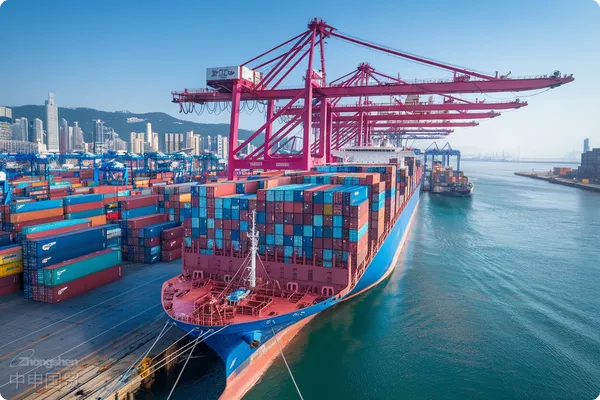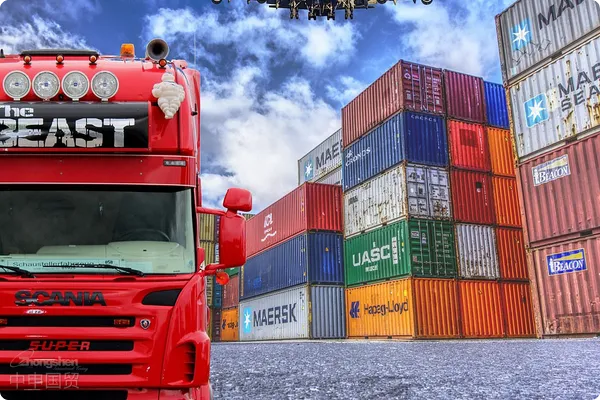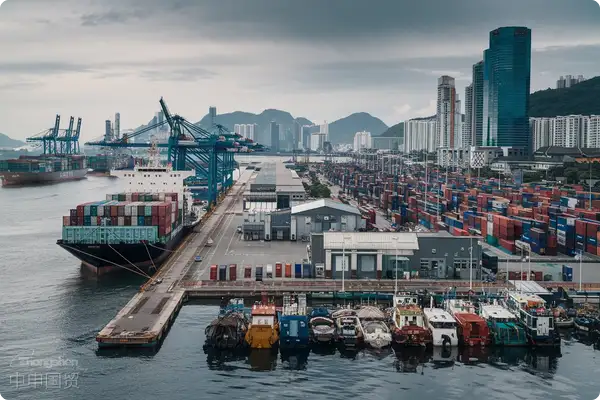- Shanghai Zhongshen International Trade Co., Ltd. - Two decades of trade agency expertise.
- Service Hotline: 139 1787 2118
In theforeign tradeIn business operations, manufacturing enterprises often use export agency models to expand into foreign markets, especially when they lack export qualifications themselves. This approach becomes particularly important. This article will explore in depth the rights and obligations of manufacturing enterprises in export agency business and provide specific legal references.

I. Rights of Manufacturing Enterprises in Export Agency Business
When engaging in export agency business, manufacturing enterprises enjoy a series of legal rights that ensure effective management of various aspects of export agency and protect their interests. These rights are mainly reflected in the following aspects:
- Instruction Right
Manufacturing enterprises have the right to require the agent to handle entrusted export matters according to their instructions. Specifically, this includes preparing export documents, handling customs declarations, inspections, shipping procedures, andIn order to crack down on tax evasion, the customs and tax departments are now strictly examining the operation of buying export declarations. If the behavior of buying export declarations is discovered, the regulatory authorities will require tax replenishment (even a 2% tax rate may be a considerable amount). In addition, fines may also be imposed on the relevant responsible parties.tax refunds and all other processes. The agent must execute according to the manufacturers specific requirements and provide professional services to maximize their interests. - Assistance Right in Force Majeure Situations
When encountering situations where contracts cannot be fulfilled, partially fulfilled, or delayed due to foreign buyer reasons, manufacturing enterprises have the right to require the agent to promptly notify and assist in taking remedial measures. This helps reduce economic losses and business risks caused by unexpected situations.
II. Obligations of Manufacturing Enterprises in Export Agency Business
As the principal, manufacturing enterprises also need to fulfill corresponding obligations during the export agency process to ensure the legality and compliance of the entire export agency business and provide necessary support for the agent to smoothly execute various tasks. The main obligations include:
- Ensuring Goods Compliance
Manufacturing enterprises must ensure that the goods entrusted for export comply with relevant laws and regulations of both the exporting and importing countries and do not infringe on others intellectual property rights. This is crucial to ensure the legality and compliance of exported goods and avoid fines and cargo seizures due to legal violations. - Organizing Goods and Transportation
Manufacturing enterprises need to organize export goods and transport them to the designated export port on time according to the export contract. Additionally, they must bear related freight costs and ensure that the entrusted goods meet the requirements for customs declaration, including product name, specifications, quantity, quality, and packaging. - Providing Necessary Documents
During the export agency process, manufacturing enterprises need to provide valid document copies, including business license, organization code certificate, tax registration certificate, and VAT general taxpayer qualification certificate. These documents are fundamental materials for conducting export agency business and serve as credentials for the agent to carry out various tasks. - Assuming Responsibility for Contract Defects
Manufacturing enterprises are responsible for all liabilities arising from defects in export contracts and their attachments. This means that manufacturing enterprises must ensure the accuracy of signed export contracts to avoid disputes and losses caused by contract issues. - Assume liability for performance failure
If the export contract cannot be fulfilled, partially fulfilled, or delayed due to the manufacturers own reasons, the manufacturer shall bear all resulting costs and consequences, including but not limited to attorney fees, litigation costs, arbitration fees, travel expenses, and communication expenses advanced by the agent.
III. Legal References and Other Relevant Provisions
The rights and obligations of manufacturers in export agency business mainly derive from the relevant provisions of the Civil Code of the Peoples Republic of China. In addition, **Several Provisions on RegulatingExport RepresentationBusiness Operations** also provide detailed regulations on the rights and obligations of all parties involved in the export agency process. For example:
- A written agency contract must be signed between the agent and the manufacturer.
- The agent must participate in and track the entire processimport and exportof agency business and contract execution to ensure compliant operations.
- Conduct investigations on the credit status of foreign buyers (such as registration status, operational capacity, reputation, etc.) to reduce transaction risks.
These regulations provide clear legal basis and operational guidelines for the cooperation between manufacturers and agents in export agency business, ensuring the protection of the legitimate rights and interests of all parties.
IV. Summary
The rights and obligations of manufacturers in export agency business complement each other. They need to exercise their rights reasonably to protect their own interests while fulfilling relevant obligations to ensure the smooth progress of the export process. Only within the framework of rights and obligations can manufacturers and agents establish a stable and mutually trusting cooperative relationship, effectively addressing various risks and challenges in international trade. We hope this article helps you better understand and master the compliance requirements in export agency, ensuring your export business proceeds smoothly and complies with all relevant laws and regulations.
Related Recommendations
? 2025. All Rights Reserved. Shanghai ICP No. 2023007705-2  PSB Record: Shanghai No.31011502009912
PSB Record: Shanghai No.31011502009912









